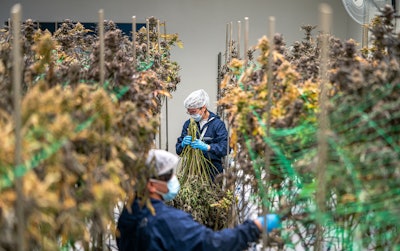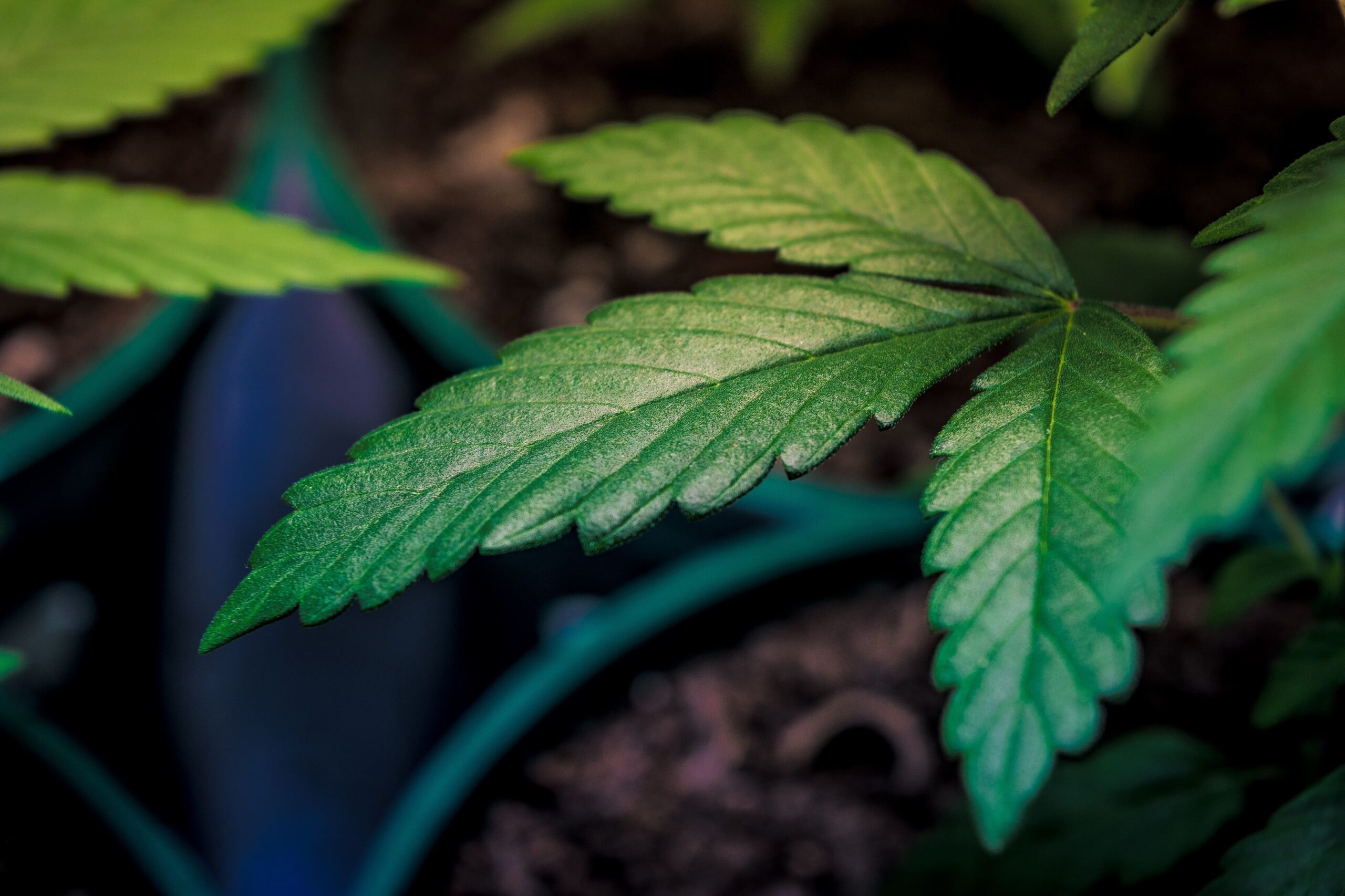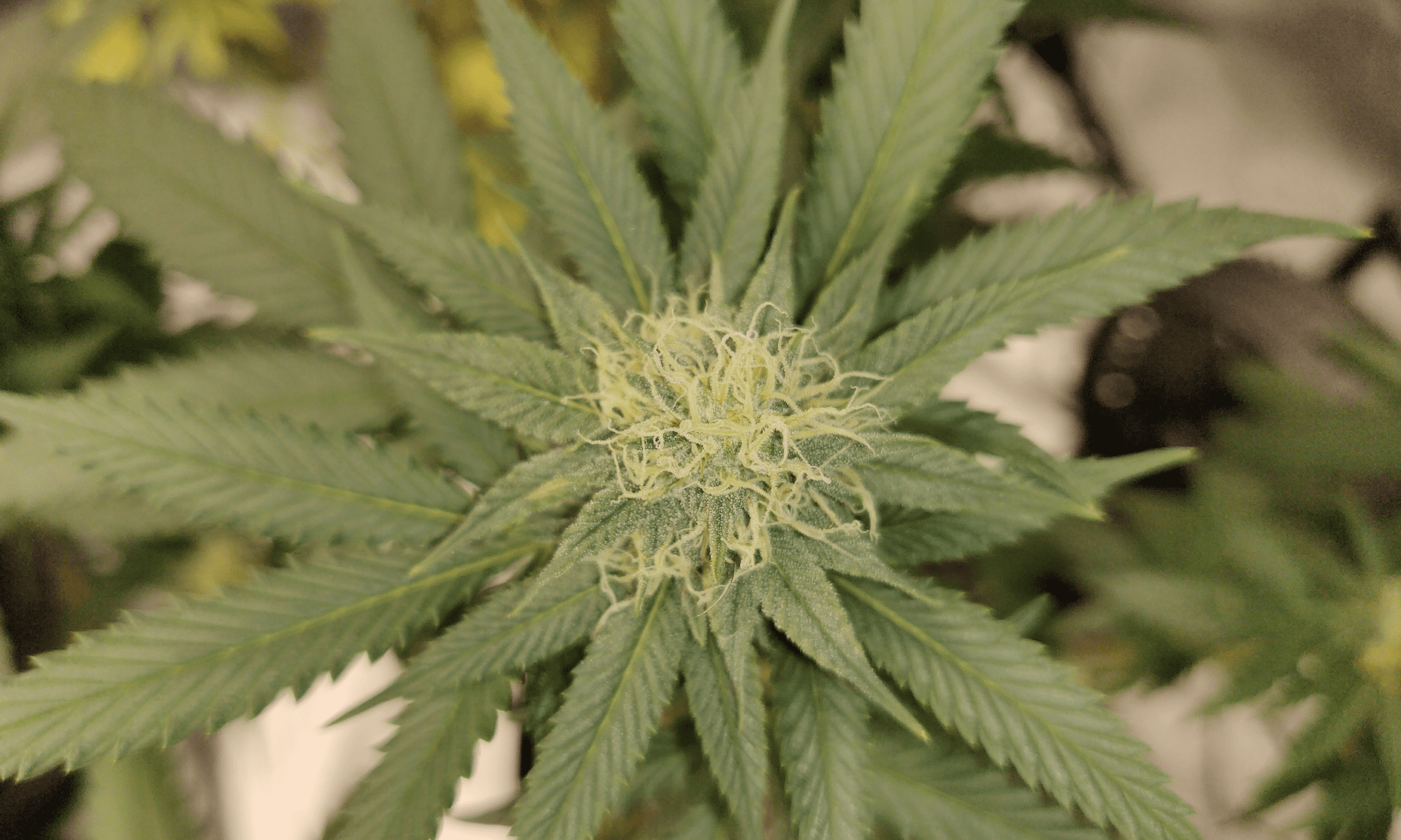featured
Cannabis Workforce Solutions: How Licensed Cultivators, Dispensaries Benefit From Industry-Education Alliances (Opinion)
Published
2 days agoon

The diverse challenges and innovations that continue to shape the cannabis industry have made the evolving partnerships among licensed operators, higher-ed institutions, and regulators increasingly important for running a business.
As legalization progresses, the need for a skilled and knowledgeable cannabis workforce has never been higher. Workforce and business development training programs are now essential for staffing cultivation, processing, and retail operations with employees who can help ensure business success and compliance.
Through establishing public-private partnerships (PPPs) with government and education programs, cannabis businesses can build workforce pipelines that continue to support their operations. These PPPs can influence hiring, compliance readiness, and long-term sustainability.
Here are a few examples:
- The Maryland Cannabis Administration’s Workforce Development Program includes 100-plus hours of training for retail, processing and cultivation careers and is supported by the state’s regulatory agency with private-sector instructors.
- The Massachusetts Cannabis Control Commission’s Social Equity Program continues to expand to include training and technical support in collaboration with local organizations to provide sustainable pathways into the industry for those most impacted by the drug war.
- The City University of New York’s (CUNY) Cannabis Workforce and Business Development Program offers security solutions, retail management, and manufacturing technician programs to prepare individuals for licensed jobs in the industry. CUNY also offers a nine-week online certification program that provides individuals with a comprehensive understanding of the industry and best practices for cultivation.
Building a Qualified Labor Pool
One of the biggest values of these training programs is how they build a pool of job candidates who already understand the demands of cannabis businesses. Whether it’s knowledge of plant science, compliance, or customer service, operators who hire people with specialized education make their operations smoother and reduce mistakes. In fact, several business owners have shared that it improves day-to-day efficiency.
Aligning Curriculum With Industry Realities
One notable trend in cannabis workforce training is the way colleges, regulators, and industry leaders are collaborating to develop educational programs that are truly relevant. These programs rapidly adapt to provide practical business skills, regulatory knowledge, and hands-on experience that reflect the real needs of today’s cannabis businesses. By drawing on input from operators and policymakers, these educational paths are staying current with compliance requirements, workplace safety, and industry-best practices.
Having previously interviewed multiple educators and administrators who are shaping the future of cannabis in higher education, I have seen firsthand how dynamic and tailored these programs are becoming.
For example, Rob Mejia, an adjunct professor of cannabis studies at Stockton University in New Jersey, told me, “Our students get jobs in the cannabis and hemp fields.”
Meanwhile, David Paleschuck, author and professor, emphasized the need for business acumen: “When working in cannabis, having core business skills is essential,” he said. “Understanding and adhering to laws and regulations are paramount.”
What stood out most in my discussions is that these programs are not one-size-fits-all, as Jennifer Maden, assistant dean and director of graduate studies at Rowan University, pointed out. Located in New Jersey, Rowan University’s Center for Cannabis Workforce Development offers a curriculum and extracurricular programs that allow students to gain the experience needed to enter the state’s cannabis and cannabis-related industries. The university’s cannabis education program includes cannabinoid chemistry, cannabis commercialization, and legal studies, in addition to a cannabis apprenticeship training program for career growth in cannabis retail.
“One size does not fit all,” Maden said. “Cross-over talent is in high demand, so identify your best skills and talents where you can bring expertise into cannabis and then focus your cannabis studies in areas where your knowledge is limited.”
Students in these programs represent a mix of backgrounds, from career changers and industry newcomers to first-generation college students, each bringing different perspectives and goals. This diversity enriches classroom discussions and helps drive innovation, but it also means educators must continue to update curriculum to keep up with changing industry standards and expectations.
Community colleges and universities are increasingly collaborating with state agencies to make sure their courses reflect both local regulations and the realities of the cannabis job market. Because of this, recent graduates from these programs aren’t just technically trained; they have an understanding of compliance and ethics, which business owners view as a major asset on the job
Actionable Insights for Licensed Cultivators and Dispensaries
 Pexels | RDNE Stock project
Pexels | RDNE Stock project
- Offer internship opportunities in partnership with local colleges or training providers to give students hands-on experience while building a pipeline of talent for your operation.
- Consider offering feedback or participating in curriculum advisory boards to help align workforce programs with your sector’s specific needs and evolving standards.
- Volunteer as a guest speaker or lecturer at local colleges to share real-world business insights and encourage students to pursue careers in cannabis, one of the fastest-growing industries.
By proactively engaging with workforce development initiatives, licensed operators can future-proof their businesses, reduce risk, and maintain a competitive edge as the market and regulations evolve.
Takeaways for Business and Policy Leaders
- Workforce development programs are key to building a sustainable and professional cannabis labor market.
- Collaboration among educators, regulators, and businesses is what keeps training programs relevant and effective.
- Licensed cannabis businesses benefit from hiring employees who are already trained in compliance, safety, and operational best practices, reducing risk and improving performance.
- Academic and training institutions play an important role in the industry’s future by actively responding to evolving business needs and shifting regulatory landscapes.
 Pexels | Diego Barros
Pexels | Diego Barros
As the cannabis industry matures, the integration of targeted workforce and business development training will be essential in maintaining high standards, supporting business growth, and fostering a compliant and professional workforce.

Author: mscannabiz.com
MScannaBIZ for all you Mississippi Cannabis News and Information.
You may like
-


Alcohol companies lobby Congress on cannabis drinks (Newsletter: October 22, 2025)
-


Millennials Are Spending Big on Luxury Travel
-


Ohio Lawmakers Advance Bill To Scale Back Voter-Approved Marijuana Law And Impose Hemp Regulations
-


Data Confirms Cannabis Is Safer Than Alcohol
-


American Council of Cannabis Medicine Unveils Major Industry Initiative to Expand Medical Cannabis Access
-


Scientists Develop New Class Of CBD Using A Common Kitchen Spice—Not Cannabis
featured
Alcohol companies lobby Congress on cannabis drinks (Newsletter: October 22, 2025)
Published
2 hours agoon
October 22, 2025
NJ governor candidates on marijuana; OH cannabis & hemp bill advances; PA cannabis regulatory vote; Non-cannabis CBD developed from kitchen spice
Subscribe to receive Marijuana Moment’s newsletter in your inbox every weekday morning. It’s the best way to make sure you know which cannabis stories are shaping the day.
Your support makes Marijuana Moment possible…
Free to read (but not free to produce)! We’re proud of our newsletter and the reporting we publish at Marijuana Moment, and we’re happy to provide it for free. But it takes a lot of work and resources to make this happen.
If you value Marijuana Moment, invest in our success on Patreon so we can expand our coverage and more readers can benefit: https://www.patreon.com/marijuanamoment
/ TOP THINGS TO KNOW
New House and Senate lobbying reports show that alcohol companies and industry groups are stepping up lobbying efforts around hemp drinks—also detailing how major businesses like DoorDash and PayPal are engaged in cannabis-related congressional advocacy.
As New Jersey voters prepare to elect a new governor, the candidates have contrasting marijuana views—with Republican Jack Ciattarelli calling cannabis a “gateway drug” and Democrat Mikie Sherrill voting for and sponsoring reform legislation in Congress.
The Ohio House Judiciary Committee approved a bill to revise the state’s voter-approved marijuana legalization law by removing some protections for consumers and to restrict intoxicating hemp products.
The Pennsylvania Senate Law & Justice Committee approved a bill to create a Cannabis Control Board to oversee the existing medical marijuana program and intoxicating hemp products—and which could also regulate the adult-use market if broader legalization is enacted.
Researchers behind a new federally funded study developed a new class of CBD-like compounds using the common kitchen spice caraway seeds—not cannabis—that “not only prevented seizures and reduced seizure-related deaths but also promoted healthier brain cell development.”
The Rhode Island Cannabis Control Commission approved a timeline for issuing new marijuana dispensary licenses, including to social equity applicants and worker-owned cooperatives.
/ FEDERAL
The White House has paused the nomination process for President Donald Trump’s nomination to be a federal judge in Florida amid his involvement in an ongoing investigation into the alleged misuse of Medicaid funds to campaign against a marijuana legalization initiative on the state’s 2024 ballot.
The U.S. Senate Caucus on International Narcotics Control held a hearing on Hezbollah’s ties to drug trafficking.
Sen. Rand Paul (R-KY) said that the Trump administration’s military strikes against alleged drug boats “go against all our tradition.”
House Armed Services Committee Ranking Member Adam Smith (D-WA) is calling for a hearing on the Trump administration’s military attacks on suspected drug boats.
/ STATES
Rhode Island Gov. Dan McKee (D) announced that the state’s top cannabis regulator is concluding her tenure.
A caller to Nebraska Gov. Jim Pillen’s (R) radio show was hung up on in the middle of making a point about medical cannabis legislation.
Ohio’s Senate president and House minority leader discussed the prospects for passing hemp legislation.
The Maryland House Ways and Means Committee toured a cannabis processing facility.
A Florida senator hosted a cannabis forum.
A former Delaware judge authored an op-ed about the “risks” of marijuana legalization.
Louisiana regulators adopted changes to medical cannabis rules.
Illinois regulators held a hearing on proposed changes to cannabis rules.
Oklahoma regulators are delaying the launch of a new medical cannabis portal.
Vermont regulators sent a reminder about new hemp product labeling requirements.
Utah regulators sent various updates about the medical cannabis program.
Minnesota regulators will host an information session about cannabis community restoration grants on Thursday.
—
Marijuana Moment is tracking hundreds of cannabis, psychedelics and drug policy bills in state legislatures and Congress this year. Patreon supporters pledging at least $25/month get access to our interactive maps, charts and hearing calendar so they don’t miss any developments.![]()
Learn more about our marijuana bill tracker and become a supporter on Patreon to get access.
—
/ LOCAL
San Francisco, California’s mayor said President Donald Trump’s threats to send the National Guard to the city “will do nothing to get fentanyl off the streets or make our city safer.”
A former Fall River, Massachusetts mayor was stabbed near the marijuana dispensary he serves as CEO for.
/ INTERNATIONAL
Brazil’s agrarian development minister pressured Meta to reinstate banned cannabis-related Instagram accounts.
Ten parties running in Netherlands elections support legalizing cannabis.
/ SCIENCE & HEALTH
A review concluded that “cannabinoids are promising therapeutic targets in the treatment of sepsis, as they improved survival, and reduced inflammation and organ injury.”
A study found that “in a state [medical cannabis] program, barriers related to MC access and cost indicated a significant increase in the likelihood of [illicit medical cannabis] use.”
/ BUSINESS
Organigram Global Inc.s’ outgoing CEO will stay on longer as the company completes an ongoing search for a replacement.
Charlotte’s Web Holdings, Inc. has a new board of directors member.
/ CULTURE
Musician Jelly Roll picked a team in a college football game based on marijuana, saying that “if this came down to the battle of the growers, I’m riding in Michigan, baby… My favorite place to partake in recreational activity in America.”
Make sure to subscribe to get Marijuana Moment’s daily dispatch in your inbox.

Author: mscannabiz.com
MScannaBIZ for all you Mississippi Cannabis News and Information.

Millennials redefine indulgence as experiences, not things — airlines adapt as Millennials are spending big on luxury travel.
Luxury isn’t what it used to be. For Millennials, adults in their 30s and early 40s, living luxuriously means swapping pricey gadgets, cars, and designer clothes for something else. Something their parents did later in life. Millennials are spending bing on luxury travel experiences. From Napa Valley wine tours to boutique ski resorts in Colorado, Millennials are redefining what it means to “treat yourself.” And it’s not just happening in the U.S.—they’re doing it worldwide.
RELATED: Gen Z Is Ditching Relationship Labels While Millennials
In the U.S., states like California, New York, Florida, and Texas are seeing a boom in experiential travel. Millennials are putting more of their disposable income into curated trips, wellness retreats, and boutique hotels—sometimes choosing these experiences over traditional material luxuries.
Globally, destinations are feeling the impact too. European Millennials are flocking to Portugal’s Douro Valley for vineyard tours and Italy’s Amalfi Coast for boutique stays. In Asia, young travelers are splurging on private island resorts in the Maldives and eco-lodges in Bali. Even in Africa, safari trips in South Africa and Kenya are attracting Millennials looking for immersive, Instagram-worthy adventures.

Why the shift? Millennials came of age during tough economic times—from the Great Recession to rising housing costs and inflation. Many have decided memories beat things which depreciate quickly. Social media also plays a role: a picture-perfect vacation is now a status symbol in itself.
Millennials favor “quiet luxury”—understated but high-quality experiences. They prefer boutique hotels, local cuisine, private tours, and eco-friendly resorts over flashy, mass-market offerings. Whether it’s a wine tasting in California or a wellness retreat in Thailand, this generation seeks personalization, authenticity, and sustainability.
Airlines are taking notice. Carriers like Delta, Air France, and Emirates are rolling out perks aimed squarely at Millennials. Think flexible booking, wellness-focused amenities, upgraded seating options, and loyalty programs rewarding experiences rather than just miles. Boutique airline partnerships with resorts, curated city guides, and even “Instagram-ready” lounges cater to this generation’s desire for travel that’s luxurious but meaningful. Some airlines are even offering subscription-style models or bundled travel packages appealing to Millennials who prioritize experiences over possessions.
RELATED: Cannabis Is Way Better And Safer Than A Honey Pack
This trend shows Millennials define luxury differently: it’s freedom, experiences, and personal growth—not what you own. Many are spending on travel instead of expensive cars, big homes, or designer brands. And as Millennials hit peak earning years, the global luxury travel market is set to grow even more.
For Millennials, luxury isn’t just a price tag—it’s an experience you remember, share, and treasure.
Top Millennial Luxury Travel Hot Spots
- California, USA: Wine country, coastal retreats, and wellness resorts.
- Portugal: Vineyard stays and scenic surf towns.
- Bali, Indonesia: Eco-lodges and spiritual wellness retreats.
- Italy: Amalfi Coast villas and food-driven cultural tours.
- Kenya & South Africa: Luxe safaris with sustainability built in.
- Iceland: Adventure and geothermal spas in minimalist luxury.
Airlines Leaning In
- Delta Air Lines: Expanding premium cabin and wellness-focused menus for “mindful flyers.”
- Emirates: Instagram-worthy lounges and inflight luxury appealing to Millennials’ visual storytelling.
- Air France & KLM: Personalized travel guides, flexible booking, and eco-conscious options.
- JetBlue Mint: Affordable luxury with craft cocktails and small-brand partnerships.

Author: mscannabiz.com
MScannaBIZ for all you Mississippi Cannabis News and Information.
featured
Ohio Lawmakers Advance Bill To Scale Back Voter-Approved Marijuana Law And Impose Hemp Regulations
Published
11 hours agoon
October 21, 2025
Ohio House lawmakers on Tuesday approved an amended Senate-passed bill that would make significant changes to the state’s voter-approved marijuana legalization law while incorporating a series of regulations for hemp that are meant to align the two sectors of the cannabis industry.
Members of the House Judiciary Committee agreed to changes to the measure from Sen. Stephen Huffman (R) before advancing it to other panels and an expected floor vote on Wednesday. But while certain controversial provisions of the bill as passed by the Senate were scaled back, it would still make major changes to the marijuana law voters approved in 2023.
The measure will now go to the Rules Committee before being re-referred to the Finance Committee, after which point it’s expected to receive floor action.
“We’ve had years of testimony. We’ve heard from marijuana advocates, hemp advocates, public health advocates and everyone in between,” Rep. Brian Stewart (R) said. “We are generally going to take the feedback from the hemp industry, which said, ‘Treat us like marijuana,” he said. “They will have the same potency limitations, the same advertising restrictions, the same restrictions on quantities, serving size and how they operate.”
Rep. Jamie Callender (R), who has led the charge on marijuana policy in the House, said ahead of the vote that the revised bill would be “very thoughtful and targeted.” But at the hearing, he added that the legislation is “not perfect” or what he would have drafted.
“It’s a bill that can get passed that will help us implement some of the elements of Issue 2 that have been held up and give clarity to the rulemakers on some of the points that are outstanding,” he said, referring to the voter-approved legalization measure. “It also clarifies and cements a few of the gains that were gained over the years: Sharing, home grow, no new prosecutions [and] the taxes going to the local governments.”
“We’ve got more work to do. We are not done.”
Under the amended legislation, stores and breweries would be permitted to sell hemp-derived THC beverages, with new advertising restrictions meant to prevent appealing to youth. Products for on-site consumption would be limited to 5 mg of THC, but adults could buy take-home drinks containing up to 10 mg. More potent drinks could also be manufactured in Ohio, but only for sales to people outside the state.
There would be a new $1.20 tax per gallon on hemp beverages created by the bill, and Stewart said it will “create a pathway for legal, regulated, licensed hemp dispensaries.”
“Nobody has ever voted to allow functionally equivalent products to marijuana—hemp products—to be sold in 6,000 plus gas stations and grocery stores around the state,” he said. “And so with this bill, we would say that you can buy intoxicating hemp products in licensed hemp dispensaries. We are not going to have intoxicating hemp available to any establishment that admits persons who are under the age of 21.”
Advocates remain concerned about other marijuana-related provisions of the Senate bill that were left intact. That includes the elimination of language in the current voter-approved law providing anti-discrimination protections for people who lawfully use cannabis and the recriminalization of possessing marijuana from any source that isn’t a state-licensed dispensary.
“It is profoundly disappointing to see the House Judiciary Committee advance legislation to roll back cannabis freedoms and protections that Ohio voters overwhelmingly approved,” Karen O’Keefe, director of states policies at the Marijuana Policy Project (MPP), told Marijuana Moment. “The committee substitute would open the door to harassment and interrogation of cannabis consumers by criminalizing any cannabis that wasn’t home grown or obtained from an Ohio retailer. It would also remove protections that prevent responsible cannabis consumers from losing their children, professions, and even their lives for cannabis use.”
The legislation also bans smoking cannabis at outdoor public locations such as bar patios, and it allows landlords to prohibit vaping marijuana at rented homes.
In short, the proposal “continues to gut the voter-enacted law,” O’Keefe said in a letter to Judiciary Committee members ahead of Tuesday’s hearing.
“Please reject this erosion of freedoms enacted by 57 percent of voters,” she said, adding that the legislation as amended “will lead to interrogations over the source of cannabis and arrests over conduct voters legalized.”
“The bill also allows families to be ripped apart, professions lost, and lives destroyed for responsible cannabis use—by repealing voter-enacted protections to prevent such suffering,” she said. “Please remove all language amending Issue 2, or at least slow the process down. Voters and stakeholders deserve a chance to review language before their law is gutted.”
Unlike the Senate-passed version of the legislation, the House substitute will send tax revenue from cannabis sales to local governments.
Rep. Desiree Tims (D) said at the hearing that she still has “concerns about the criminal justice implications” of the substitute bill, inquiring of the sponsor about expungement provisions.
“My number one fear is that we are in the process of legalizing something where a select few will become very, very wealthy, while people continue to suffer from past activities–whether recreational or otherwise—utilizing the very same products that we are allowing people to make a profit off,” she said.
Stewart said the bill does contain a pathway for people with prior cannabis possession convictions to have their records expunged if they proactively petition the courts, and that process would be “expedited,” albeit not automated as is in the case in certain other legal marijuana states.
Members of the committee separately approved an amendment from Rep. Josh Williams (R) to revise the expungement process for eligible past cases by making it incumbent on the state to proactively defend any decision to deny a person’s request to seal their record.
Another lawmaker raised a question about disparate penalties for the sale of hemp or marijuana to minors compared to alcohol, and Stewart replied that the Republican caucus is “comfortable with the penalty being higher for marijuana and intoxicating hemp.”
“I think that’ll probably be a source of continued debate as Ohioans kind of get used to a fairly substantial new landscape here,” he said. “Rightly or wrongly, I still think there is a view that we’re a little more concerned about selling kids weed than Miller Lite.”
Tuesday’s hearing comes weeks after DeWine issued emergency rules prohibiting the sale of intoxicating hemp products for 90 days, with instructions to the legislature to consider permanent regulations. Last week, however, a county judge enjoined the state from enforcing that policy in response to a legal challenge.
“Frankly, the legislature had not taken action,” Gov. Mike DeWine (R) said in an interview published this week. “I’m still hopeful that the legislature will come in and actually take action.”
House Speaker Matt Huffman (R) commented recently on the relative lack of progress in advancing marijuana and hemp legislation since voters approved legalization at the ballot in 2023, noting substantive divides within the Republican caucus.
There are “folks who believe that marijuana should be legalized and regulated,” others “who believe that the hemp products should be on equal standing with everything that happened in the initiated statute and then “folks, like me, who are prohibitionists, who don’t think it should be legalized at all and it should be rare,” he said.
“I would say the prohibitionists have largely lost this discussion.”
—
Marijuana Moment is tracking hundreds of cannabis, psychedelics and drug policy bills in state legislatures and Congress this year. Patreon supporters pledging at least $25/month get access to our interactive maps, charts and hearing calendar so they don’t miss any developments.![]()
Learn more about our marijuana bill tracker and become a supporter on Patreon to get access.
—
Meanwhile, last month, the Ohio Department of Cannabis Control (DCC) filed new proposed rules to build upon the state’s marijuana legalization law, laying out plans to update regulations on labeling and packaging requirements.
The proposal came weeks after Ohio medical and adult-use marijuana sales officially crossed $3 billion, data from the state Department of Commerce (DOC) shows.
The state sold about $703 million in recreational cannabis in the law’s first year of implementation, according to DCC data.
In March, a survey of 38 municipalities by the Ohio State University’s (OSU) Moritz College of Law found that local leaders were “unequivocally opposed” to earlier proposals that would have stripped the planned funding.
Meanwhile in Ohio, adults as of June are able to buy more than double the amount of marijuana than they were under previous limits, with state officials determining that the market can sustainably supply both medical cannabis patients and adult consumers.
The governor in March separately announced his desire to reallocate marijuana tax revenue to support police training, local jails and behavioral health services. He said funding police training was a top priority, even if that wasn’t included in what voters passed in 2023.
Ohio’s Senate president has also pushed back against criticism of the Senate bill, claiming the legislation does not disrespect the will of the electorate and would have little impact on products available in stores.
Photo courtesy of Mike Latimer.

Author: mscannabiz.com
MScannaBIZ for all you Mississippi Cannabis News and Information.

Alcohol companies lobby Congress on cannabis drinks (Newsletter: October 22, 2025)

Millennials Are Spending Big on Luxury Travel

Ohio Lawmakers Advance Bill To Scale Back Voter-Approved Marijuana Law And Impose Hemp Regulations

Data Confirms Cannabis Is Safer Than Alcohol

American Council of Cannabis Medicine Unveils Major Industry Initiative to Expand Medical Cannabis Access

Scientists Develop New Class Of CBD Using A Common Kitchen Spice—Not Cannabis

Evidence About Burning Mouth Syndrome And Cannabinoids

Raw Garden Acquires ‘California Love’ to Grow Clean Cannabis Movement

Rhode Island Marijuana Officials Approve Timeline For Awarding New Dispensary Licenses

‘Rent-a-License’ Scheme Highlights New York Cannabis’s Track-and-Trace Problem

Alcohol Industry Steps Up Lobbying On Hemp Drinks As Congress Debates THC Ban

Cannabis Mogul Appointed Ambassador To Middle East Country

Pennsylvania Senators Approve Bipartisan Cannabis Bill To Create New Regulatory Body

Ahead Of New Jersey Governor Election, GOP Candidate’s Comments On Marijuana As A ‘Gateway Drug’ Resurface

Urgent Action Needed To End US Marijuana Arrests

Supreme Court takes up cannabis & gun rights case (Newsletter: October 21, 2025)

What Winning Looks Like: The New Jersey Dispensaries Playing a Different Game

Trump Taps Marijuana Industry ‘Visionary’ As Special Envoy To Iraq

Delaware Scam Claiming to Represent State-Licensed Dispensary Offering Illegal Cannabis Deliveries – Ganjapreneur
New York Should Legalize Psilocybin Therapy, Former Narcotics Prosecutor Says (Op-Ed)

Do Public Votes About Cannabis Matter Currently

Ohio Lawmakers Will Take Up Bill To Revise Voter-Approved Marijuana Law And Add Hemp Market Restrictions This Week

The Best Microdosing Strains For A Rough Week
Rubicon Organics Announces Health Canada Cultivation License For Cascadia Facility

Alert: Department of Cannabis Control updates data dashboards with full data for 2023

Connecticut Appoints The US’s First Cannabis Ombudsperson – Yes there is a pun in there and I’m Sure Erin Kirk Is Going To Hear It More Than Once!

5 best CBD creams of 2024 by Leafly

Recreational cannabis on ballot for third time in South Dakota

EU initiative begins bid to open access to psychedelic therapies
New Study Analyzes the Effects of THCV, CBD on Weight Loss

Free delta-9 gummies from Bay Smokes

5 best autoflower seed banks of 2024 by Leafly

Discover New York’s dankest cannabis brands [September 2024]

May 2024 Leafly HighLight: Pink Runtz strain

Press Release: CANNRA Calls for Farm Bill to Clarify Existing State Authority to Regulate Hemp Products

5 best THC drinks of 2024 by Leafly

Local medical cannabis dispensary reacts to MSDH pulling Rapid Analytics License – WLBT

6 best CBD gummies of 2024 by Leafly

Curaleaf Start Process Of Getting Their Claws Into The UK’s National Health System – With Former MP (Resigned Today 30/5/24) As The Front Man

Horn Lake denies cannabis dispensary request to allow sale of drug paraphernalia and Sunday sales | News

5 best delta-9 THC gummies of 2024 by Leafly

Mississippi city official pleads guilty to selling fake CBD products

The Daily Hit: October 2, 2024

Nevada CCB to Accept Applications for Cannabis Establishments in White Pine County – “Only one cultivation and one production license will be awarded in White Pine County”

5 best THCA flower of 2024 by Leafly

Weekly Update: Monday, May 13, 2024 including, New Guide for Renewals & May Board meeting application deadline

6 best hemp pre-rolls of 2024 by Leafly

PRESS RELEASE : Justice Department Submits Proposed Regulation to Reschedule Marijuana
Trending
-

 California Cannabis Updates1 year ago
California Cannabis Updates1 year agoAlert: Department of Cannabis Control updates data dashboards with full data for 2023
-

 Breaking News1 year ago
Breaking News1 year agoConnecticut Appoints The US’s First Cannabis Ombudsperson – Yes there is a pun in there and I’m Sure Erin Kirk Is Going To Hear It More Than Once!
-

 best list1 year ago
best list1 year ago5 best CBD creams of 2024 by Leafly
-

 Business1 year ago
Business1 year agoRecreational cannabis on ballot for third time in South Dakota
-

 Business1 year ago
Business1 year agoEU initiative begins bid to open access to psychedelic therapies
-

 cbd1 year ago
cbd1 year agoNew Study Analyzes the Effects of THCV, CBD on Weight Loss
-

 Bay Smokes1 year ago
Bay Smokes1 year agoFree delta-9 gummies from Bay Smokes
-

 autoflower seeds1 year ago
autoflower seeds1 year ago5 best autoflower seed banks of 2024 by Leafly



